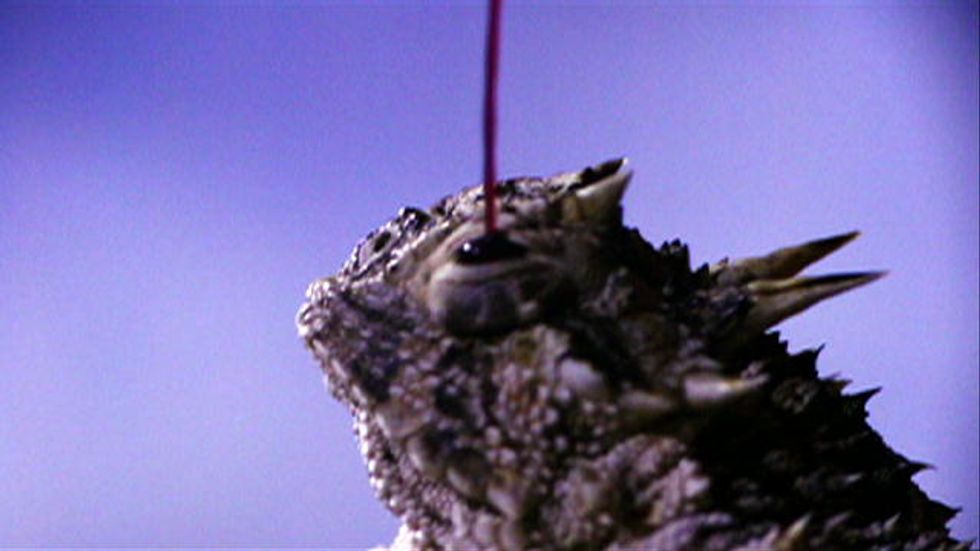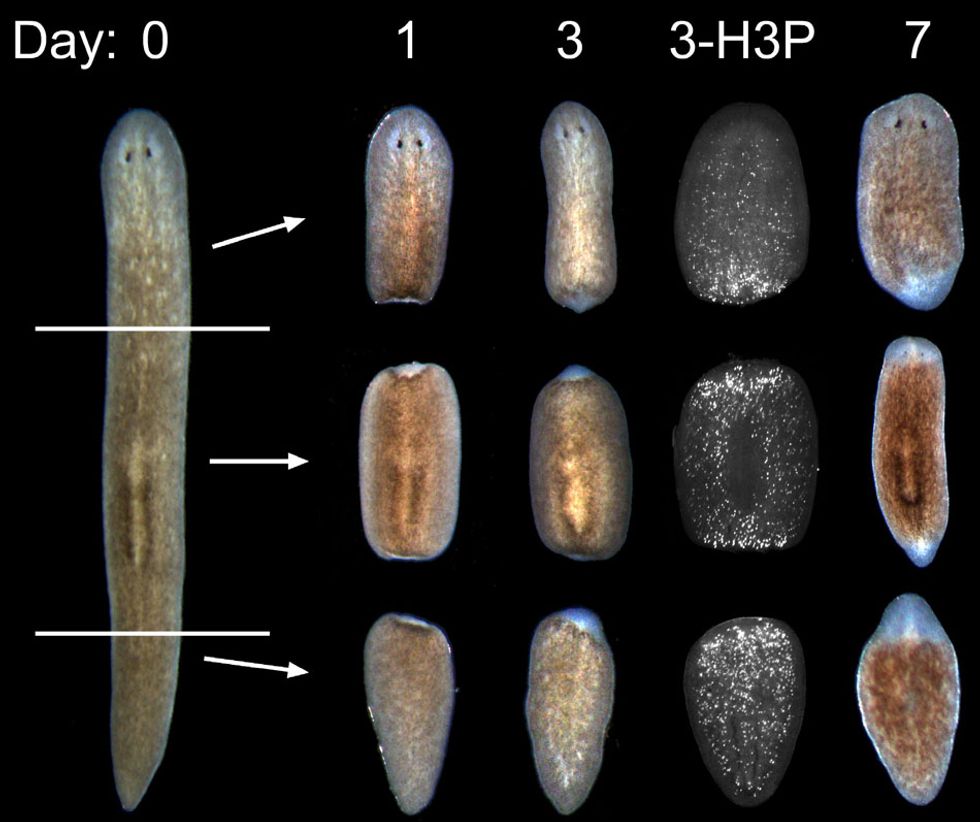You could be a field biologist and learn something new every day. Nature is both an arms dealer and an enemy. Its harsh desert sun, icy Antarctic terrain, and stormy oceans pose a challenge to all life that live on it. At the same time, nature has endowed some pretty amazing adaptions to help life in its struggle against itself. Here are some of biology’s most interesting adaptations.
1. Sharks Can Sense Electricity
The ampullae of Lorenzini allow sharks to detect electric fields in water. Why do sharks need to detect electricity? Any organism with neural tissue outputs a minor voltage marking it as a target for the shark.
2. Texas Horned Lizards Will Gun You Down... With Blood
The Texas horned lizard can squirt blood from its eyes with a range of 5 feet. The blood is mixed with a scent foul to its predators.
3. Tardigrades' Resilience
Tardigrades are microscopic animals, but their size is certainly not a reflection of their toughness. They can survive in the frost of a glacier, vicinity of a volcano, and the pressure of ocean trenches. Tardigrades grow up to a half millimeter in length, so you can barely find see them if you find one.
4. Basilisks Can Run On Water
Basilisks are real, but they are nowhere near as terrifying as their Harry Potter counterpart. Running on water is really useful to avoid predators.
5. Some Cuckoos Trick Other Birds In Raising Its Young
Most parents would not want to give away their child, but some cuckoos find parenthood hard and lay its eggs in the nests of friendlier birds.
6. Planarians Can Regenerate Its Entire Body After Being Cut In Pieces
This flatworm can regenerate head, body, and tail. If bisected, they can grow a new half. If both the head and tail are cut off, the remaining piece can regrow both. They are a powerful model in studying biological regeneration, which could become applicable to regeneration of human tissue.
7. Our Brains
Our ability to process, communicate, and remember information has allowed us to defy nature. We can arm our bodies against disease, protect against harsh temperatures, and grow our own food.


























